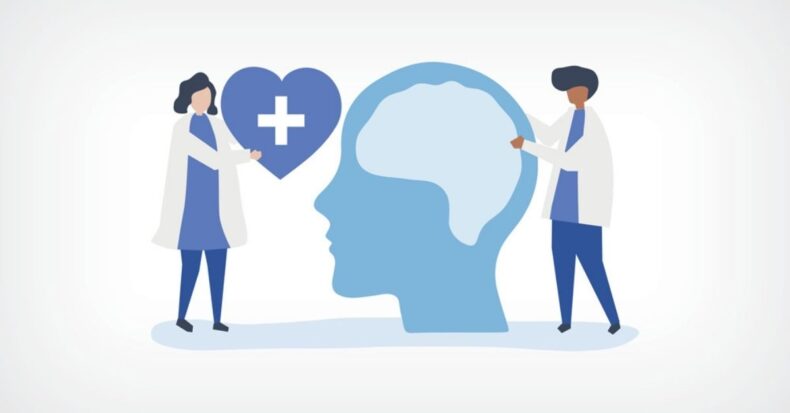Human Immunodeficiency Virus (HIV) is a type of virus that attacks our body’s immune system, and when HIV is not treated, it can lead to AIDS (acquired immunodeficiency syndrome).
Mental health includes our psychological, emotional, and social well-being, affecting how we think, feel, and act. It helps determine how we handle stress, how we can relate to others, and make choices.
Mental health is vital at every stage of life, from childhood and adolescence through adulthood.
We may experience mental health problems throughout life, influencing our behavior, thinking, decision-making capacity, and the likes.
Various factors can contribute to mental health problems, including genes or brain chemistry, categorized as biological factors. Life experiences, such as trauma or abuse, will influence our mental health.
Mental Health and Wellness
Having positive mental health allows people to live their lives to the fullest; they will cope with pressure and stress without facing much anxiety and other issues. They will be able to be part of a healthy society and make meaningful contributions to their communities.
What are the stages of HIV?
When people with HIV don’t get proper treatment, they typically progress through three stages. Namely, Acute HIV Infection, Chronic HIV Infection, and acquired immunodeficiency syndrome (AIDS).
Even though HIV medicine cannot completely cure the patients, the medication could slow or prevent the progression of the disease.
With the advancements in treatment, progression to acquired immunodeficiency syndrome (AIDS) is now significantly reduced compared to the old days when the medical field has not been this developed.
Mental Health and HIV
Having a serious illness, such as HIV, can be a significant source for developing high stress. One can arguably confirm that the diagnosis of HIV does challenge your sense of well-being or complicates an individual’s existing mental health conditions.
HIV and some other infections can even affect your nervous system, which could lead to developing some changes in your behavior.
Keeping up good mental health can help you live your life to the fullest and is essential to treat HIV successfully. Your mental health requires the same or even more attention than you show to your physical health. So, it is crucial to know when, how, and where to get help for building and nurturing good mental health.
Depression is one of the most common mental health conditions found in people living with HIV faces. Depression can be defined as a common and one of the most severe medical illnesses that negatively affects how they feel, think and act.
Depression can vary from mild to severe cases. It is understandable if we can analyze the people suffering from depression around us.
Though it is treatable, the situation can be a bit tricky for a person diagnosed with HIV who also suffers from depression. Depression causes feelings of sadness or a loss of interest in activities you once enjoyed.
It can lead to various emotional and physical problems and decrease your ability to function at work and home. Both HIV-related medical conditions and HIV medications can contribute to depression.
Peer support is identified as very crucial for many people living with HIV. For people suffering from HIV, it is imperative to connect with medical professionals and the support of people surrounding their lives.
A study conducted by the National AIDS Trust in the United Kingdom, published on Thursday (21 October), investigated the effectiveness of the Improving Access to Psychological Therapies (IAPT) services for those living with HIV.
The new research shows that the service is failing many people who live with HIV – many of whom face a specific set of stigmas and mental health issues not experienced by the wider population.
Also, two in five respondents said their mental health did not change due to therapy they received through IAPT services, and one in 10 said their mental health had gotten worse.













